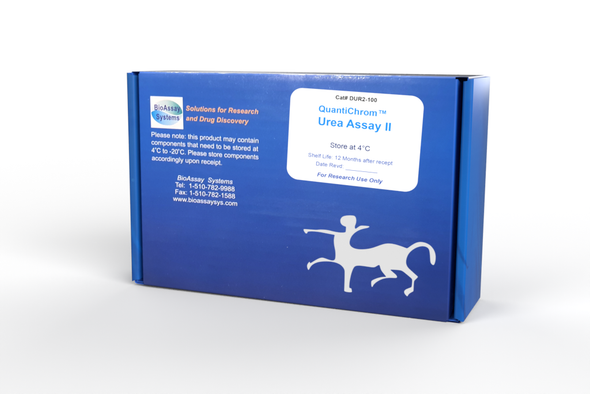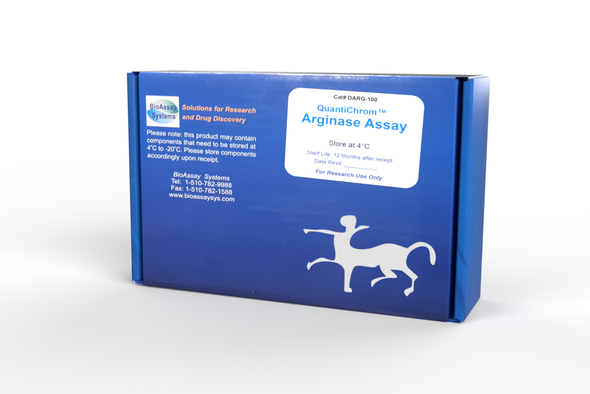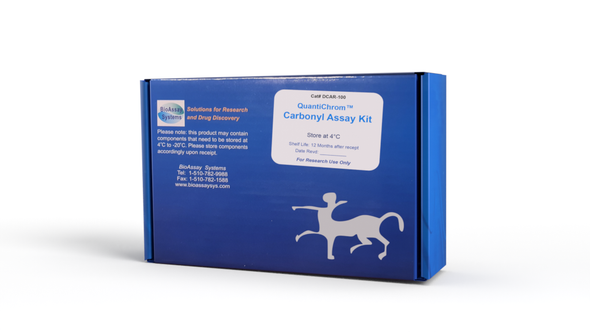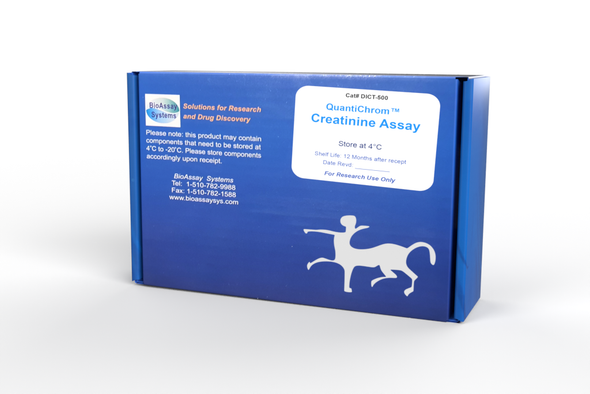QuantiChrom™ Urea Assay Kit (100T)
Application: For quantitative determination of urea and evaluation of drug effects on urea metabolism.
Key Features:
- Sensitive and accurate. Use 5 μL samples. Linear detection range 0.08 mg/dL (13 μM) to 100 mg/dL (17 mM) urea in 96-well plate assay.
- Simple and high-throughput. The procedure involves addition of a single working reagent and incubation for 20 min. Can be readily automated as a high-throughput assay for thousands of samples per day.
- Improved reagent stability and versatility. The optimized formulation has greatly enhanced reagent and signal stability. Cuvet or 96-well plate assay.
- Low interference in biological samples. No pretreatments are needed. Assays can be directly performed on raw biological samples i.e., in the presence of lipid and protein.
Method: OD520nm (Chemical)
Samples: Serum, plasma, urine, milk, cell/tissue culture, bronchoalveolar lavage (BAL), food, beverage and environment
Species: All
Size: 100 tests
Detection Limit: 0.08 mg/dL (13 μM)
Shelf Life: 12 months
More Details:
Urea is primarily produced in the liver and secreted by the kidneys. Urea is the major end product of protein catabolism in animals. It is the primary vehicle for removal of toxic ammonia from the body. Urea determination is very useful for the medical clinician to assess kidney function of patients.
In general, increased urea levels are associated with nephritis, renal ischemia, urinary tract obstruction, and certain extrarenal diseases, e.g., congestive heart failure, liver diseases and diabetes. Decreased levels indicate acute hepatic insufficiency or may result from over-vigorous parenteral fluid therapy. Simple, direct and automation-ready procedures for measuring urea concentration or blood urea nitrogen BUN in biological samples are becoming popular in Research and Drug Discovery.
Gentaur Genprice urea assay kit is designed to measure urea directly in biological samples without any pretreatment. The improved Jung method utilizes a chromogenic reagent that forms a colored complex specifically with urea. The intensity of the color, measured at 520nm, is directly proportional to the urea concentration in the sample. The optimized formulation substantially reduces interference by substances in the raw samples.






